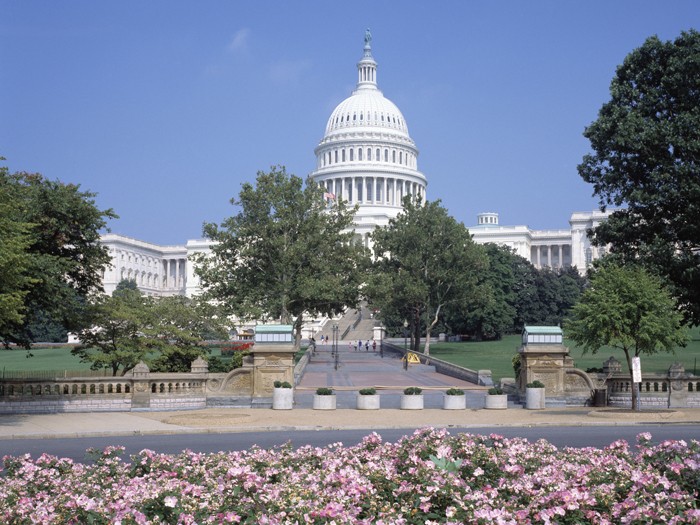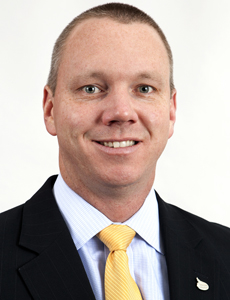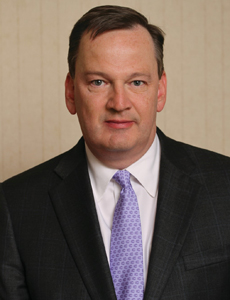Lobbying for Change
Brokers List Legislative Priorities

‘Tis the season for major insurance agent and broker organizations to formalize their legislative agendas for the coming year.
Holding the line on an Obama administration proposal that would reduce crop insurance premium subsidiaries by $16 billion over the next 10 years is a top priority for these organizations.

John Prible, vice president of federal government affairs, Independent Insurance Agents & Brokers of America
“Individual agents are the primary distribution force for the federal crop insurance program,” said John Prible, Washington, D.C.-based vice president of federal government affairs for the Independent Insurance Agents & Brokers of America (IIABA). “So we’re intimately involved in that program.”
Members of the National Association of Professional Insurance Agents (PIA) underscored at its annual federal legislative summit held in late March that it, too, vigorously opposed the Obama administration proposal for crop insurance cuts.
PIA also said it supports a modernized state-based insurance system and opposes any federal regulation or international standards that would destabilize or supplant state-based insurance regulations.
PIA is also closely monitoring activities of the Federal Insurance Office (FIO), including actions related to producer licensing and international agreements, to ensure that the FIO does not exceed its limited authority.
Jon Gentile, PIA’s director of federal affairs, also noted that his organization has endorsed the Access to Professional Health Insurance Advisors Act of 2015, which clarifies that producer compensation will not be considered as part of medical loss ratio (MLR) calculations under the Affordable Care Act.
PIA said independent agents play a critical role in the sale and servicing of health insurance.
Protecting Assets
Prible said the IIABA is going to the Hill to support the recently introduced Policyholder Protection Act.
“This bill is a tweak to Dodd-Frank that would allow state regulators to wall off and protect insurance company assets for insurance consumers and not have these assets used to bail out non-insurance related failures,” said Prible.
“For example, if a financial institution has both a bank and an insurance company, we want to make sure that if the bank fails it’s not going to bring down the insurance company.
“We’re also going to be talking about the Labor Department fiduciary standards issue, which we’re becoming very engaged in,” he said. “We frankly think the Securities and Exchange Commission should act first on instilling a fiduciary standard and that the Labor Department should take a back seat.”
Flood Insurance
Another big issue Prible’s organization is working on is the national flood insurance program. “The program expires on Sept. 30, 2017, but we’re going to be on the Hill reminding them that that’s not that far away,” he said.
Several insurance agent and brokers organization are lobbying to incentivize independent agents and brokers to sell flood insurance, which at present is largely a federal program.
“Right now,” said Joel Wood, senior vice president for government affairs at the Washington, D.C.-based Council of Insurance Agents and Brokers (CIAB), “there is very, very little private flood insurance because everything is written through the federal government.
“Rep. Dennis Ross (R-Fla.) has legislation in the House Financial Service Committee that would incentivize private carriers in the flood insurance program,” he said.
Threat to Employer Benefits
Wood noted that CIAB’s top legislative issue right now is on the benefits side — in opposing the so-called Cadillac tax, a provision of the ACA.
Starting in 2018, benefit plans that cost more than $10,200 for individuals and $27,500 for families will be taxed with a 40 per cent excise tax.
“It’s not indexed to medical inflation and so over time will affect most plans,” Wood said. “While it’s aimed at raising many billions of dollars, we believe that’s bogus as I’ve yet to hear of a single employer who is going to pay the tax. Instead they’ll reduce their benefits. Goodbye flexible spending accounts and medical savings accounts, for example.
“We believe the Cadillac tax may present the greatest long-term threat to employer-sponsored health care.”
Wellness Initiatives
On another ACA front, CIAB and others are fighting an Equal Employment Opportunity Commission lawsuit that claims Honeywell’s expansive wellness program is inherently discriminatory.
“This threatens the sanctity of all wellness plans because the argument is that you’re discriminating against smokers and obese people, so everything is sort of on hold with people moving ahead on wellness plans,” said Wood.
“There is a lot of uncertainty caused by the EEOC. So we are working with others on legislation that has been introduced in the House and the Senate that would put the teeth back into the wellness provision and essentially render moot the EEOC lawsuit against Honeywell,” he said.











